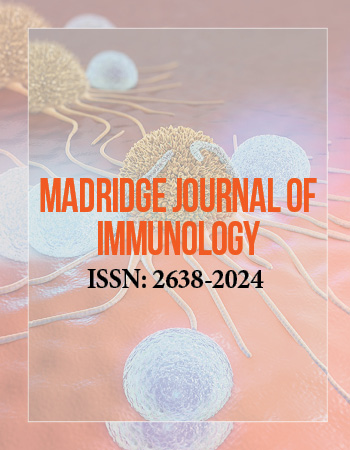International Conference on Immunology and Immunotechnology
November 1-3, 2017 Barcelona, Spain
New Insights in Chaperone Mediated Extracellular Vesicle Communications and Regulations: Roles in Neuroinflammation-Mediated Neurodegeneration
Hasselt University, Biomedical research institute, Belgium
Immune responses to small heat-shock proteins (HSPBs) are observed in almost all chronic inflammation. HSPBs provide protection from cellular and environmental stress factors as molecular chaperones to maintain protein homeostasis. In Multiple Sclerosis (MS), there is an up regulation of HSPBs which are secreted out of the cells into the blood. Extracellular HSBPs have a protective role in mediating immunological functions and immunomodulatory activity. MS is a chronic autoimmune disease of the central nervous system, featured by immune cell mediated destruction of the insulating myelin around neuronal processes. Previously we showed that HSPB1 and HSPB8 have critical neuroprotective functions in the peripheral nervous system where mutations in these chaperones cause peripheral neuropathy and axonal death. We showed that expression of mutant HSPB1 decreased acetylated α-tubulin abundance and induced severe axonal transport deficits. Intracellular HSPB are released out and their potential extracellular functions during neuroinflammation have not been studied extensively. Neural cells secrete exosomes or extracellular vesicles expressing HSPBs. Exosomes are nanovesicles which are of great importance for their biomarker potential in disease diagnosis and therapy. We hypothesize that HSPB8 loaded extracellular vesicles restores the disrupted protective mechanisms of extracellular HSPB8 induced by neuroinflammation. Understanding the mechanism of EV loaded-HSPBs chaperoning activities in neuroinflammation will provide new insights to advance the development of therapeutic strategies in neuro degeneration.
Biography:
Dr. Joy Irobi earned her doctorate in the field of molecular biology, and spent 17 years as the lead researcher for the internationally renowned Institute VIB and UAntwerp Center for Molecular Neurology. Currently, she is a professor of medicine and life sciences in the Biomedical Research Institute (BIOMED) at Hasselt University in Belgium. Her Neuro-Functional Genomics group at Hasselt University focuses on elucidating chaperone mediated extracellular vesicle communications and regulations in neuroinflammation-mediated neuro degeneration. She has produced more than 30 international peer-reviewed publications and has won several awards for her contributions to the field of biomedical sciences.


